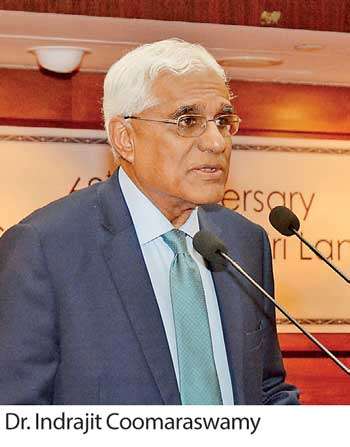31 Aug 2018 - {{hitsCtrl.values.hits}}
 The Central Bank remains hopeful that it can migrate to flexible inflation targeting in the first quarter of next year— one year before it was originally planned.
The Central Bank remains hopeful that it can migrate to flexible inflation targeting in the first quarter of next year— one year before it was originally planned.
Flexible inflation targeting is where the interest rates are determined aiming a set inflation target instead of targeting reserve money or broad money in the economy.
For instance, the United States Federal Reserve has set its consumer price inflation target at 2.0 percent for at least for five years before it raised its interest rates.
Under inflation targeting, a Central Bank walks on a tight rope where it should set its key policy rates to a level, which will neither overheat the economy nor undermine its growth.
“We feel that we are on track to have a fully-fledged flexible inflation targeting regime by the end of the first quarter of next year,” said Governor Dr. Indrajit Coomaraswamy.
Under flexible inflation targeting, the Monetary Board is able to execute a more proactive and forward looking monetary policy, Dr. Coomaraswamy said.
However, the critics of the new system said the Central Bank is on a suicidal mission by adopting inflation targeting as it becomes an easy scapegoat for the financial profligacy of the government.
The success of inflation targeting largely depends on fiscal discipline and sticking to a budget consolidation path without any deviation.
In an earlier occasion the Central Bank said that they would migrate to flexible inflation targeting only if the government succeeded in containing the budget deficit to 3.5 percent of GDP by 2020 and maintained it below that level thereafter.
Sri Lanka’s budget deficit has overshot its target for decades and it was 5.5 percent of GDP in 2017 while the headline national inflation in July reached 3.4 percent on a year-on-year basis.
In order to achieve the intended objectives of the flexible inflation targeting, the Monetary Law Act is being amended to help the Central Bank to anchor inflation expectations and present fiscal dominance over the monetary policy.
Further, the Central Bank is also trying to amend the Fiscal Management (Responsibility) Act 2003 to cease deficit financing by the Central Bank as it has been the habit for decades.
“We will be putting in place a legal framework to not possible to have fiscal forbearance,” Dr. Coomaraswamy added.
At a time when the country is exposed to international capital markets, Dr. Coomaraswamy said that this type of legal framework is necessary to showcase the country has stability and macroeconomic fundamentals in place.
However, he noted that much of the success would depend on the political will. “Of course all these things need political blessings,” he said.
17 Nov 2024 19 minute ago
17 Nov 2024 2 hours ago
17 Nov 2024 3 hours ago
17 Nov 2024 3 hours ago
17 Nov 2024 4 hours ago